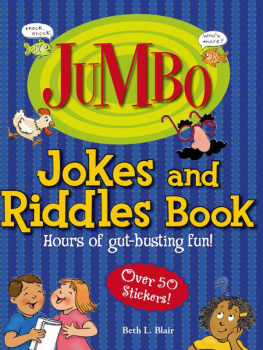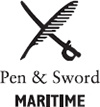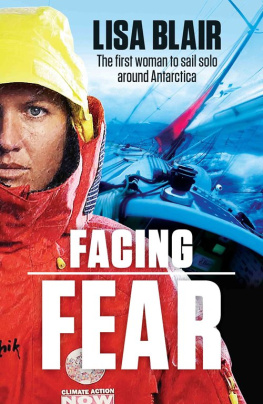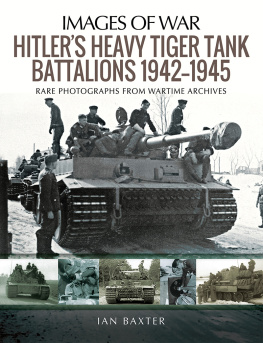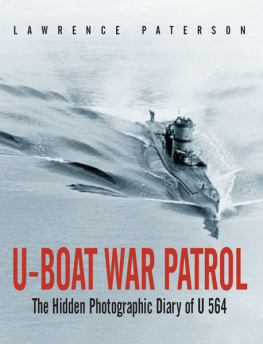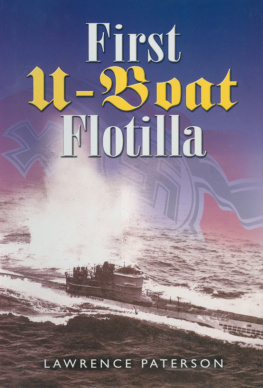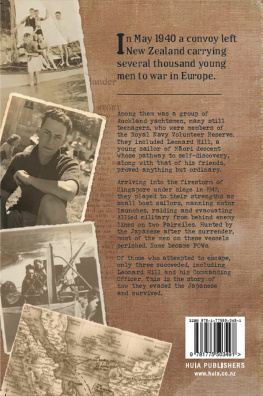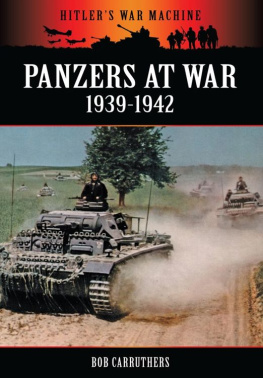Blair - Hitlers U-Boat War: The Hunted 1942-45
Here you can read online Blair - Hitlers U-Boat War: The Hunted 1942-45 full text of the book (entire story) in english for free. Download pdf and epub, get meaning, cover and reviews about this ebook. year: 2011, publisher: Orion, genre: History. Description of the work, (preface) as well as reviews are available. Best literature library LitArk.com created for fans of good reading and offers a wide selection of genres:
Romance novel
Science fiction
Adventure
Detective
Science
History
Home and family
Prose
Art
Politics
Computer
Non-fiction
Religion
Business
Children
Humor
Choose a favorite category and find really read worthwhile books. Enjoy immersion in the world of imagination, feel the emotions of the characters or learn something new for yourself, make an fascinating discovery.

Hitlers U-Boat War: The Hunted 1942-45: summary, description and annotation
We offer to read an annotation, description, summary or preface (depends on what the author of the book "Hitlers U-Boat War: The Hunted 1942-45" wrote himself). If you haven't found the necessary information about the book — write in the comments, we will try to find it.
Blair: author's other books
Who wrote Hitlers U-Boat War: The Hunted 1942-45? Find out the surname, the name of the author of the book and a list of all author's works by series.
Hitlers U-Boat War: The Hunted 1942-45 — read online for free the complete book (whole text) full work
Below is the text of the book, divided by pages. System saving the place of the last page read, allows you to conveniently read the book "Hitlers U-Boat War: The Hunted 1942-45" online for free, without having to search again every time where you left off. Put a bookmark, and you can go to the page where you finished reading at any time.
Font size:
Interval:
Bookmark:
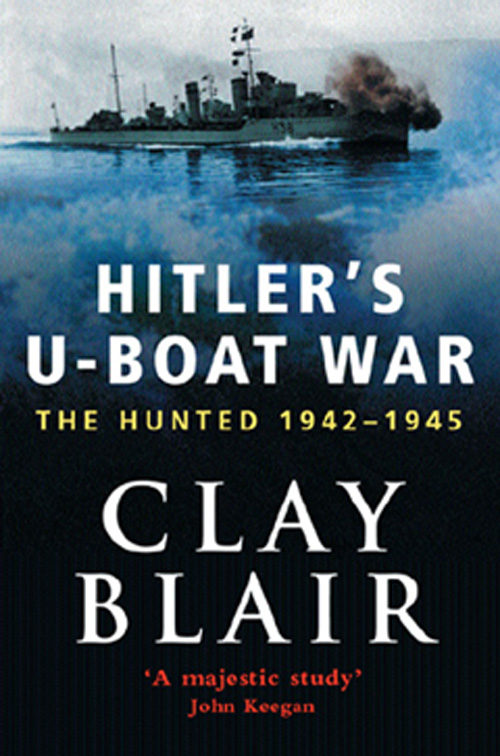
Once again, to Joanmy wife,
best friend, and loyal and
patient collaborator
I n Volume I of this history, The Hunters, I described, analyzed, and assessed in great detail the first three years of the German U-boat war: August 1939 to August 1942. This volume, The Hunted, is a continuation of the U-boat story from September 1942 to the surrender of Germany in May 1945.
Like the U-boat war itself, Volume I was subdivided into two sequential books: the U-boat war against the British Empire (1939-1941) and the U-boat war against the Americas (December 1941-August 1942). This second volume contains but one book: the U-boat war against the naval forces of the British Commonwealth, including notably Canada, and those of the United States.
Adolf Hitlers Third Reich was absurdly unprepared for a naval war with the Allies. Therefore, for the second time in the twentieth century, German navalists were compelled to resort to cheap, mass-produced submarines, manned mostly by civilian volunteers, to conduct the war at sea, often and somewhat misleadingly called the Battle of the Atlantic. They conceived and waged a guerre de course, or war against British-controlled merchant shipping, designed to blockade the British Isles so tightly that the starved-out British government would be forced to lay down arms and withdraw from the war.
The commander in chief of the U-boat force, Karl Dnitz, characterized this German naval strategy as a tonnage war. The objective was the destruction of British-controlled merchant ships wherever they could be found with the least risk to the U-boats. It did not matter whether the ships were large, medium, or small, laden or empty, close to or distant from the battlefronts. The goal was to sink merchant ships (tonnage) at a rate much faster than the British could replace them with new ships, thereby whittling down the existing tonnage to a decisively unworkable level.
As described in Volume I, this tonnage war against the British-controlled merchant fleet failed in the period from 1939 to 1941 for various reasons. There were not enough U-boats to bring it off and those deployed to the battlefronts had so many shortcomings that they were not suitable for the task. They sank 1,125 ships for about 5.3 million tons, but the British Commonwealth more than made good these losses by new construction and by acquisition of shipping from the United States, German-occupied nations such as Norway, France, Belgium, the Netherlands, and Greece, and by captures of Axis-controlled vessels. At the end of 1941, the British-controlled merchant fleet, including tankers, was larger by about three million tons than it was in 1939.
After the United States formally entered the war against the Axis powers in December 1941, Dnitz viewed the British and American merchant-marine fleets as a single entity and continued the tonnage war as before. Sensing an opportunity to strike a heavy blow at low risk, he threw the main weight of the U-boat force at the Americas for about eight months, from December 1941 to August 1942. That campaign destroyed about six hundred Allied ships for about three million tons, but by that time American shipyards, employing tens of thousands of women, were mass-producing Liberty ships, tankers, and other types at a prodigious rate, not only making good all Allied merchant-ship losses but also swelling the size of the combined Allied fleet to undreamed of tonnage levels.
As in World War I, strategists at the British Admiralty and senior fleet commanders of the Royal Navy were slow to recognize and to properly come to grips with the U-boat threat. They believed that by convoying and by arming merchant ships with 4 or larger guns, and employing secret asdic (sonar) technology, which was developed between the wars, any U-boat force the Germans deployed could be neutralized and quickly defeated. This smugness did not last for long. It turned out that the besieged Royal Navy, committed to an overabundance of tasks, had nowhere near enough blue-water escorts to properly protect convoys and, furthermore, the smallish Hunt-class destroyer escort, specifically designed for that purpose and rushed into production, failed to live up to its promise and could not be employed on the vital North Atlantic run between the Americas and the British Isles.
Hard-pressed on land and sea and in the air, the British chose brains over brawn. To counter the Luftwaffe, British scientists perfected a radar-warning net, then miniaturized radar to fit into aircraft, sharing this ingenious, war-decisive technology with Canada and the United States. At the same time, other British intellectuals, capitalizing on technical help from the defeated Poles, broke into the German Enigma military encoding-machine system. Still other British scientists and engineers developed an astonishingly accurate land-based high-frequency direction-finding network (Huff Duff), then miniaturized the devices to fit on ships. Radar, codebreaking, and to a limited extent Huff Duff, and other scientific breakthroughs, enabled the Royal Navy and Royal Air Force to thwart wolf pack attacks by the Atlantic-based U-boats on convoys in 1941, in large part, by simply routing convoys around known U-boat positions.
That same year, 1941, the United States graduallyand illegallyentered the Battle of the Atlantic. Having already loaned the British sixty warships for convoy escort (fifty old destroyers and ten Coast Guard cutters), the United States occupied the Avalon Peninsula of Newfoundland and built a naval base at Argentia. It then occupied Greenland and Iceland and built substantial naval and air bases on Iceland. It commenced building a naval base in Londonderry, Northern Ireland, and slated about fifty more destroyers to escort fast convoys on the North Atlantic run between Canada and Iceland and the reverse. The passage of the Lend-Lease Act enabled America to build warships (jeep carriers, destroyer escorts, and frigates, among other types) and Liberty-type merchant ships for Britain and Canada and to repair warships of those nations in American naval shipyards. A relaxation of the Neutrality Act authorized American merchant ships to enter the war zones in Europe to deliver Lend-Lease war matriel and oil.
When the United States formally entered the war in December 1941, President Roosevelt and his military chiefs, adhering to prior secret agreements, revalidated a war policy of defeating Germany and Italy first, then Japan. Notwithstanding the losses incurred in the Japanese attack on Pearl Harbor and other places in the Pacific and Far East, the United States retained substantial naval forces in the Atlantic Ocean area to combat the U-boats, to insure that the vital North Atlantic cargo run to the British Isles and the Arctic cargo route to northern Russia continued to operate effectively, and to transport tens of thousands of troops to Iceland, Northern Ireland, and the British Isles. Owing to its prior gift of sixty warships to the Canadian and British navies, the United States did not have enough escorts to initiate convoying in the waters of the East Coast, Gulf of Mexico, and the Caribbean Sea in the first four months of 1942, during which time the Allies incurred grievous merchant-ship and crew losses to U-boats.
By the end of August 1942, when Volume I of this history, The Hunters, concludes, the U-boats in three years of naval warfare had sunk in all waters about two thousand Allied ships of all sizes, shapes, and types, for about 9.3 million gross tons. While these figures are quite impressiveindisputably a notable chapter in the history of naval warfarethey were not anywhere near enough. New merchant-ship production in American yards alone had reached a level of about six million gross tons a year and was rising dramatically; the Commonwealth turned out another million-plus gross tons of new shipping and repaired a great number of ships that had been laid up with damage.
Font size:
Interval:
Bookmark:
Similar books «Hitlers U-Boat War: The Hunted 1942-45»
Look at similar books to Hitlers U-Boat War: The Hunted 1942-45. We have selected literature similar in name and meaning in the hope of providing readers with more options to find new, interesting, not yet read works.
Discussion, reviews of the book Hitlers U-Boat War: The Hunted 1942-45 and just readers' own opinions. Leave your comments, write what you think about the work, its meaning or the main characters. Specify what exactly you liked and what you didn't like, and why you think so.

